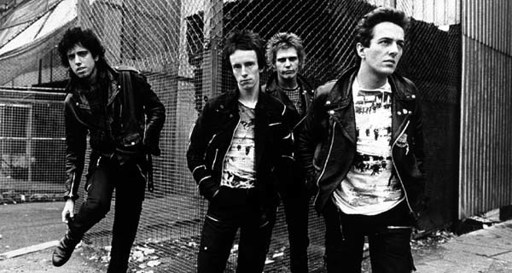The Encyclopedia of Dead Rock Stars (250 page)
Read The Encyclopedia of Dead Rock Stars Online
Authors: Jeremy Simmonds

Monday 9
Mary Hansen
(Maryborough, Queensland, 1 November 1966)
Stereolab
(Various acts)

A supposed shrinking violet, Mary Hansen supported her early forays into music at the box office of the Scala Cinema in London. Onstage, however, there was no lack of confidence: tall and elegant, the guitarist’s counterpoint to main singer Laetitia Sadier’s lyrics about space-age furniture or modern Marxism (usually sung in French) gave Stereolab the possibly unique tag of avantgarde MOR. In truth, this band were much more, the Krautrock/Bacharach inspirations providing just a fraction of their overall sound. In 1992, Australian-born Hansen joined Sadier, Tim Gane (various instruments), Duncan Brown (bass), Sean O’Hagan (keyboards) and Andy Ramsay (drums), as the 2-year-old band began to break from the confines of late-night radio. Two years on, Stereolab made a huge splash in the US at Perry Farrell’s Lollapalooza Festival, while seeming to close in on chart action at home with the singles ‘French Disko’ and the truly wondrous ‘Ping Pong’. Now they were making arguably their best albums in
Mars Audiac Quintet
(1994),
Emperor Tomato Ketchup
(1995),
Dots and Loops
(1997) and
Cobra and Phases
(1999). Although the breakthrough never came – which was unlikely in any case to have bothered Hansen and co – the ever-morphing Stereolab remained one of the decade’s most striking acts, enjoying sellout shows despite their apparent status as unknowns.
As she travelled to rehearsal at a London studio, Mary Hansen was struck from behind and knocked from her bicycle by a reversing truck. Despite bystanders coming to her aid, Hansen died before she could be taken to hospital. The music industry as a whole was shocked to learn of the passing of the singer/musician, who also contributed to recordings by the bands Brokeback, Chicano, Moonshake, Mouse On Mars, The Wolfhounds and The High Llamas (O’Hagan’s other project). Although she had lived in Britain since 1988, Mary Hansen’s funeral took place at her home town of Maryborough near Brisbane.
Hybrid,
a collection of Hansen’s recordings, was issued in 2004, while Stereolab continue to pay tribute to one of their key players.

Stereolab’s Mary Hansen: Creating sonic delight in a better place
Friday 13
Zal Yanovsky
(Toronto, Ontario, 19 December 1944)
The Lovin’ Spoonful
(The Mugwumps)
(Various acts)

Restless musician Zal Yanovsky dropped out of college in his native Toronto to become a key figure in the Greenwich Village pop explosion of the mid sixties, his band responsible for some of that era’s brightest music. Initially collaborating with singer and multi-instrumentalist John Sebastian as The Mugwumps (with future Mamas & Papas duo Cass Elliot and Denny Doherty), Yanovsky believed a career in music might never take off when he was passed over for a role in the television pop series
The Monkees.
But success was not long in coming for the guitarist: his and Sebastian’s ‘Do You Believe in Magic?’ (1965) was picked up by producer Erik Jacobsen, who rerecorded it with the pair, plus Steve Boone (bass) and Joe Butler (drums) – and The Lovin’ Spoonful were born. Between September 1965 and December 1966, The Spoonful racked up seven Top Ten hits in America, ‘Daydream’ being the biggest seller worldwide, the US number one ‘Summer in the City’ perhaps the most evocative. Yanovsky was certainly the most distinctive member of the band onstage, his Davy Crockett gear much imitated by other stars of the day. The wheels began to come off the wagon for the guitarist, however, when he found himself at the centre of a marijuana bust in San Francisco in 1967. A native of Canada, his only real choice was to head back home to Ontario to avoid possible incarceration. Although he was to return to The Lovin’ Spoonful the year after, Yanovsky had lost much credibility with his contemporaries, having failed to testify in the court cases of various friends. On top of this, while he’d been away a third album had stiffed, causing Yanovsky to jack the band in for good. Back once again in Canada, he attempted a solo career with the album
Alive and Well in Argentina (and Loving Every Minute of It)
(1971), which no one bought.
The erstwhile musician went on to open Chez Piggy (despite his Jewish roots), a restaurant in Quebec, and produce a spin-off book of recipes. Zal Yanovsky was still quite a notable figure in and around Toronto at the time of his death, at home, from congestive heart failure.
See also
‘Mama Cass Elliot ( July 1974); Denny Doherty (
July 1974); Denny Doherty ( Golden Oldies #42)
Golden Oldies #42)
1 am not Che Guevara.’
Joe Strummer, 1980

Clash city rockers: Mick Jones, Topper Headon, Paul Simonon and the extraordinary Joe
Sunday 22
Joe Strummer
(John Graham Mellor - Ankara, Turkey, 21 August 1952)
The Clash
(The Mescaleros)
(The 101ers)
(Various acts)

If The Sex Pistols took all the headlines at the time, then The Clash won the longer campaign, succeeding in taking their potent blend of agitprop and great tunes from punk’s smallest clubs to the masses. Of the band, Joe Strummer was clearly the creative core, a man originally dismissed as too privileged for punk rock, now revered as perhaps the most honest British voice to emerge from the movement.
The son of a diplomat, Joe Strummer was originally ‘Woody Mellor’ (after folk legend Woody Guthrie) – a name perhaps betraying his musical traditionalism – while a member of Welsh rockers The Vultures. A late starter on the guitar (‘I was like a gorilla with three fingers!’), the 21-year-old musician was taught the rudiments of his instrument by Tymon Dogg, a friend he’d met at one of the many squats he’d inhabited on arrival in London. Basic accommodation and lack of employment were behind the dissatisfaction fuelling the energy of seminal pub-rockers The 101ers – the band Strummer formed at 101 Walterton Road – who developed a reputation as ‘a great free night out’. And it was in the dole queue that Mick Jones and Paul Simonon first thought about approaching the man who was to change their lives.
Unlike many UK punks, Strummer loved American rock ‘n’ roll and made no bones about the fact that he wanted to crack the States when The Clash came into being. He may have been against all-pervading US culture (viz 1977’s ‘I’m So Bored with the USA’), but American music informed the band Strummer was to make his own. The potency of his rock ‘n’ roll was also to be infused with other influences previously unheard in British punk, such as reggae, rockabilly and folk. (His new moniker also displayed a self-deprecating humour previously unencountered in the new wave.) With CBS, the label that wised-up to the potential greatness of The Clash – Strummer, ex-London SS guitarists Jones and Simonon (who took up the bass), plus drummer Nicky ‘Topper’ Headon – the band really made their mark as they duelled with The Pistols et al on the 1976 ‘Anarchy in the UK’ tour. Not that Strummer and The Clash espoused anarchy, or indeed any of punk’s nihilism: their message – contained within the lyric of first single ‘White Riot’ (1977) – was one of activism against exploitation, authority and control. Strummer, with his trademark stance, was just the man to carry this off. A first album,
The Clash
(1977), performed well at home, though nearly didn’t receive a release in the States (and what a mistake that would have been, given its subsequent US acclaim). To the dismay of some of their fans, the band then employed Blue Oyster Cult producer Sandy Pearlman to craft the follow-up,
Give Em Enough Rope!
(1978) – weaker than the debut album, despite its number-two peak in Britain and a couple of great minor hits in ‘Tommy Gun’ and ‘English Civil War’. The band were still unsettled at this point (Headon left and returned at least twice, to be replaced briefly by Terry ‘Tory Crimes’ Chimes and even, at one point, future Culture Club drummer Jon Moss) and Strummer was still derided by his Pistols rivals (‘Agitprop out of the back of
Time Out,
in the words of ex-member Glen Matlock). The biggest trouble he could find for himself was a £100 fine for stealing hotel pillowcases. But the music was improving.